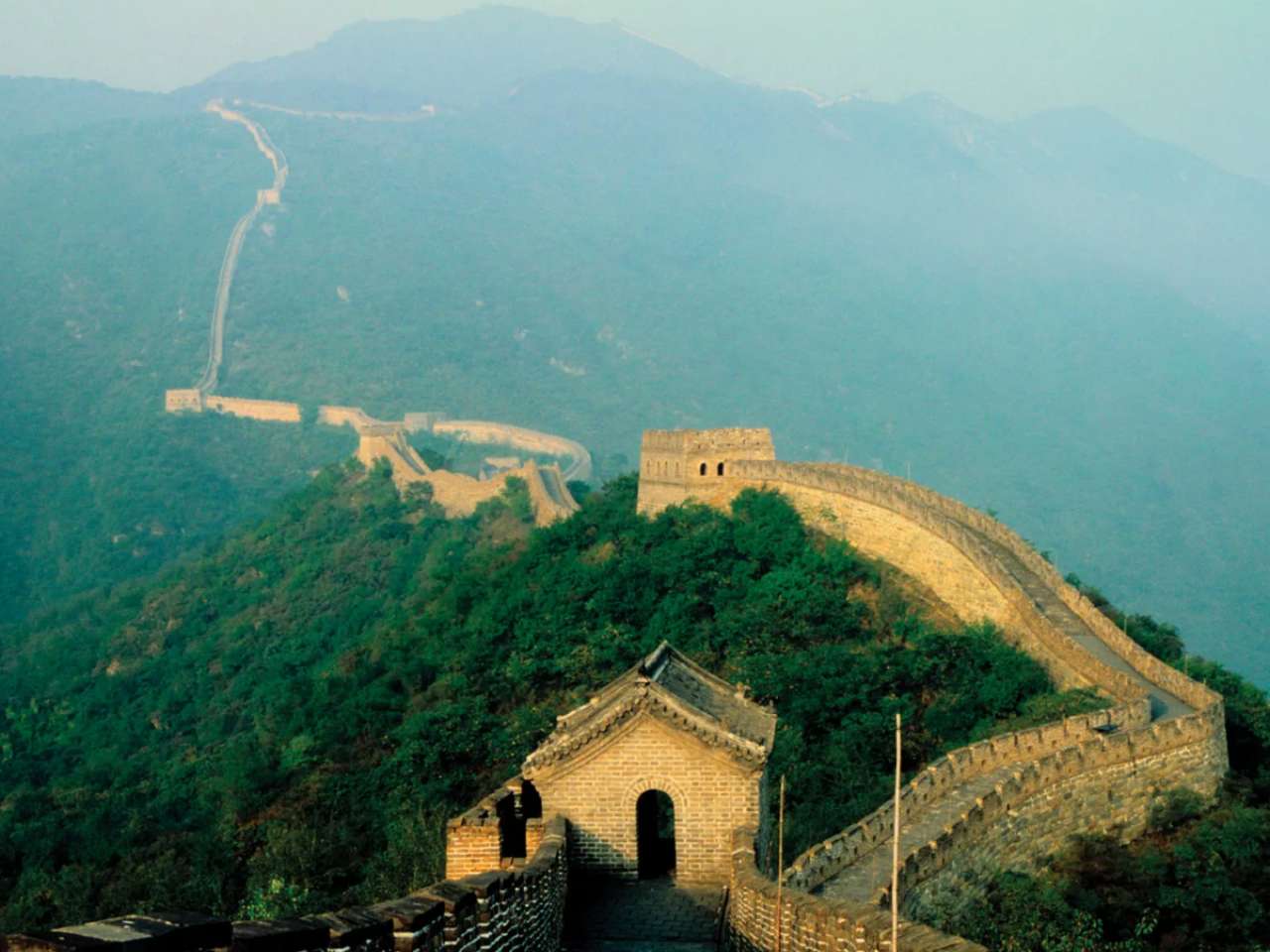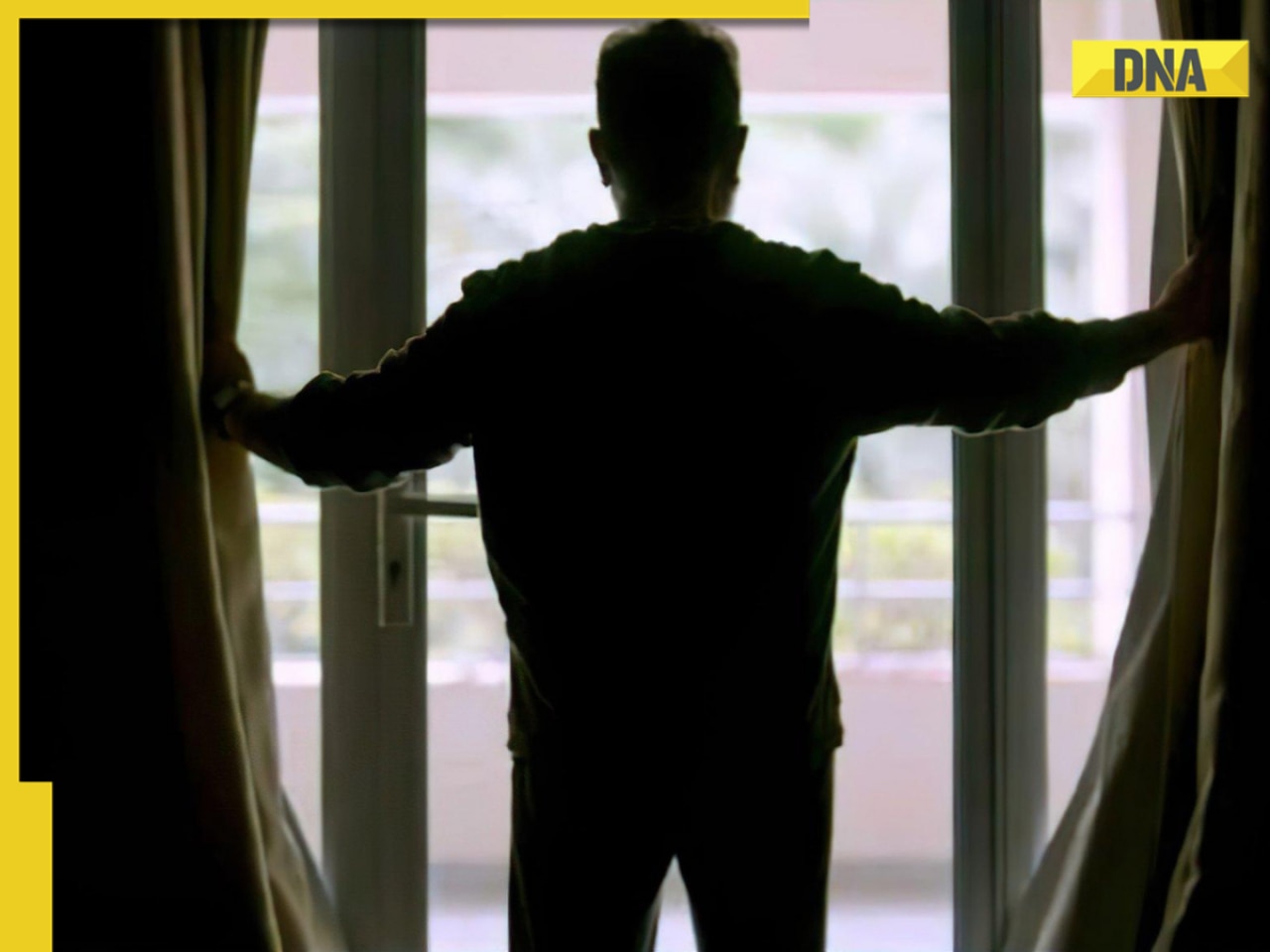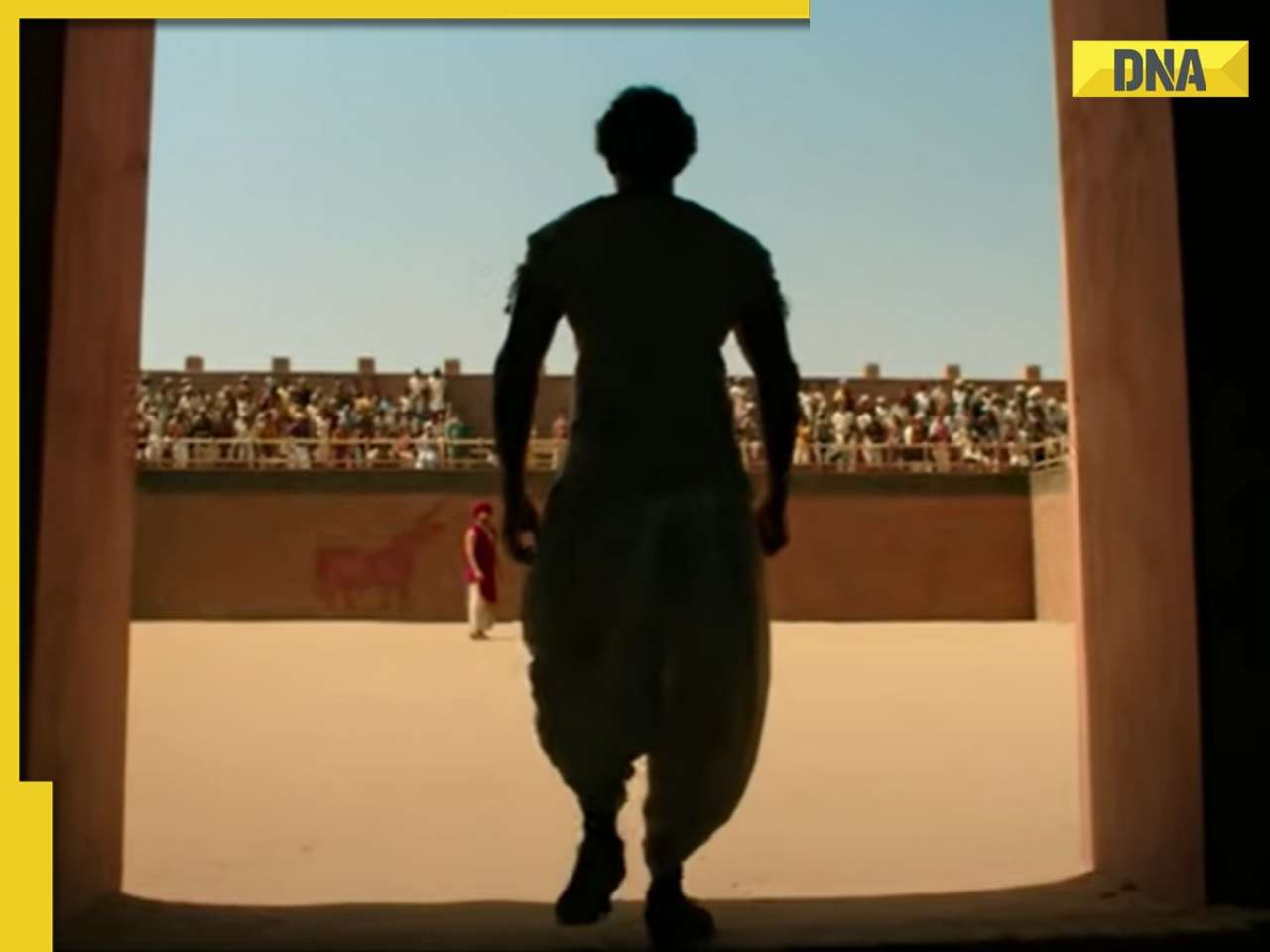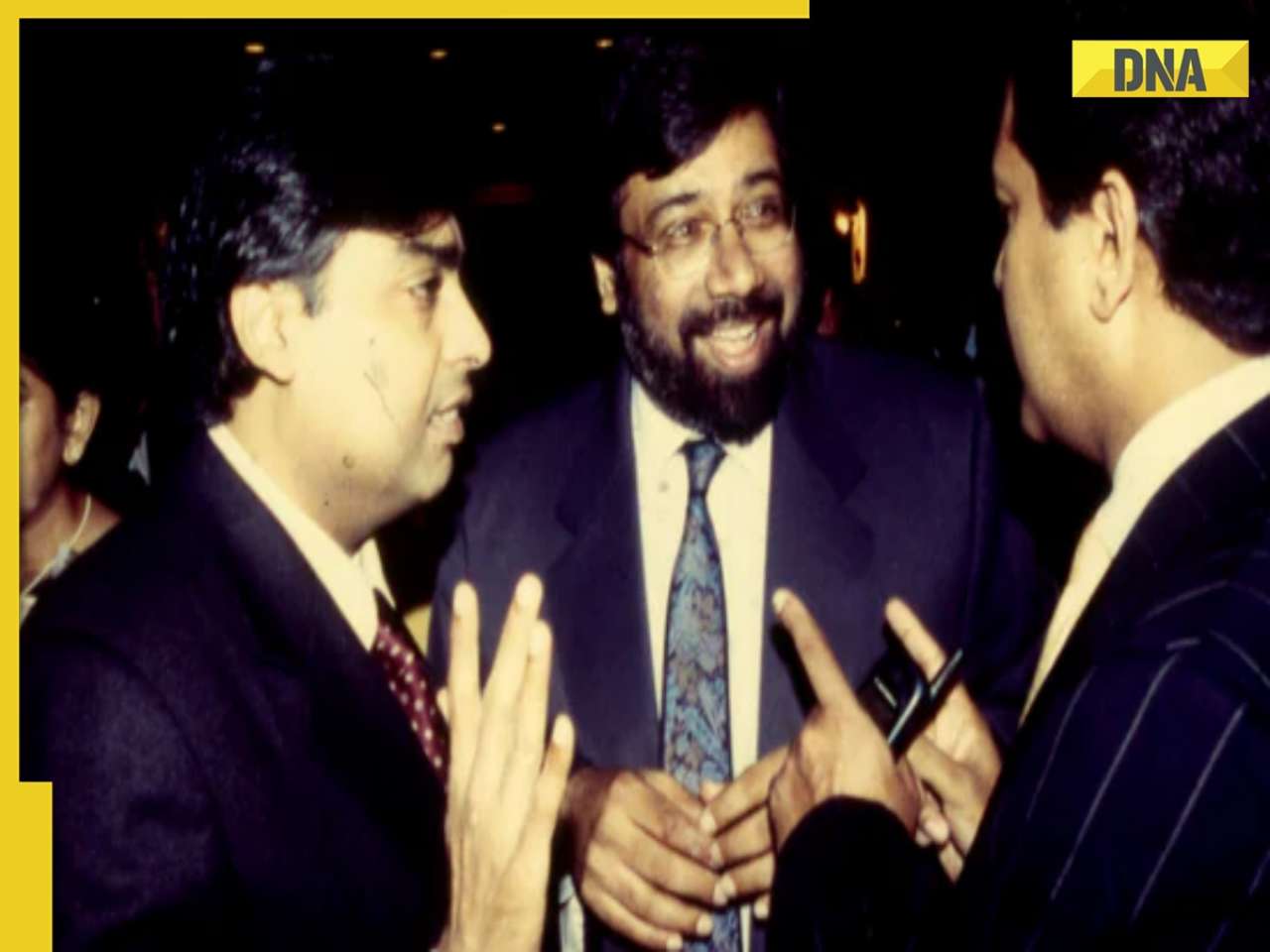Here are 6 modern day scientists who have left an impact on the way a thinking mind perceives this world.
Scientists have been helping humankind understand the ways in which the universe works. Be it from a mathematician's point of view like John Nash with his game theory, or Carl Sagan with his astronomy. Modern day science started to gain momentum with Isaac Newton and now we have Brian Cox carrying that legacy forward.
Here is a list of modern day scientists who have left an impact on the way a thinking mind perceives this world -
Alan Turing: Turing was a British Mathematician and cryptanalyst. He is considered the father of modern day computer science. Alan Turing worked at Bletchley Park, Britain's code-breaking centre in World War ll. He fashioned a machine to decipher the codes generated by the Germans' 'Enigma' machines. His machine cut short the war by two years and saved millions of lives. He pioneered the concept 'Artificial Intelligence'. He devised the 'Turing Test'; the idea was that a computer could be called a "thinking" being if a human interrogator could not tell it apart from another human being. Turing was prosecuted for his homosexual activities. Later he took his life by eating a poisoned apple which is rumoured to be the inspiration behind Apple Inc's logo.

John Forbes Nash Jr.: Nash was known for devising the 'Nash Equilibrium' which extended the reach of 'Game Theory' into social sciences and evolutionary biology. 'Nash Equilibrium' also aids in analysing several types of competitive scenarios like corporate rivalries, sporting strategies and decision making. Nash was a Princeton University alumni and worked at MIT before returning to Princeton. He suffered with schizophrenia for a major part of his life and he successfully managed to stop taking medication and made a full recovery. In 1994, he won the Nobel prize in Economic Sciences with other game theorists Reinhard Selten and John Harsanyi. He died in a car crash on May 24, 2015.

Stephen Hawking - Hawking is probably the most famous scientist of our time. Known for his ground breaking 'Big Bang Theory'. British professor worked on the general theory of relativity with another physicist Roger Penrose. Hawking is Director of Research at the Centre for Theoretical Cosmology within the University of Cambridge. Hawking's book A Brief History of Time is a record breaking best-seller.
Hawking suffers from Amyotrophic Lateral Sclerosis (ALS) which has reduced his motor functions to just one cheek muscle attached to a speech-generating device. Hawking's life inspired 2004 BBC film Hawking starring Benedict Cumberbatch and also The Theory of Everything for which Eddie Redmayne won Best Actor award at Oscars last year.

Carl Sagan - Sagan was one of the popular and loved scientist of our time. The American astronomer was a key influence in popularising science among kids which gave birth to an entire generation of geeks!
Carl contributed to the scientific research of extraterrestrial life. He participated in experimental demonstration of the production of amino acids (which are basis of proteins in our bodies) from radiation. Sagan also assembled the first physical messages that were sent into space with NASA's Voyager mission.
Sagan published over 600 papers and articles and authored over 20 books. His show Cosmos has a viewership of at least 500 million people across 60 countries. For most of his career, Sagan worked at Cornell University. Sagan died of pneumonia at the age of 62 on December 20, 1996

Jane Goodall - Jane Goodall is an English anthropologist and primatologist. She is considered world's foremost expert on chimpanzees. Goodall is one of the only eight people who got a PhD from Cambridge without having a degree under their belt.
Jane began her study at Lasakela Chimpanzee Community in Gombe Stream National Park, Tanzania in 1960. Her research at the facility challenged two notions that only humans could use tools and construct and that they are vegetarians. She also observed that chimps hunt systematically and eat smaller primates. Kenyan archaeologist and palaeontologist Louis Leakey, who commissioned and funded her study, wrote, "We must now redefine man, redefine tool, or accept chimpanzees as human!"
Goodall has worked on conservation and animal welfare issues ever since. The 81 year-old scientist is UN Messenger of Peace.

Tim Berners-Lee - Sir Timothy John 'Tim' Berners-Lee is responsible this World Wide Web we can't live without. Thanks to him you are able to read this article. Well him, Alan Turing, and couple of others. But you get my point, right?
In March 1989, he proposed an information management system and in November same year, implemented first successful communication between Hypertext Transfer Protocol (HTTP) client and server. While working at CERN he started working on these hypertext protocols to facilitate sharing and upgrading of information.
In 1990 he designed and built the first web browser. And the first website built was at CERN and it was put online on August 6, 1991.
Berners-Lee is president of Open Data Institute in London which works for opening and accessibility of of web. Berners-Lee is one of the pioneering voices in favour of Net Neutrality.

![submenu-img]() Viral video: Kind man assists duck family in crossing the road, internet lauds him
Viral video: Kind man assists duck family in crossing the road, internet lauds him![submenu-img]() Can you see the Great Wall of China from space? here's the truth
Can you see the Great Wall of China from space? here's the truth![submenu-img]() Ashutosh Rana breaks silence on his deepfake video supporting a political party: 'I would only be answerable to...'
Ashutosh Rana breaks silence on his deepfake video supporting a political party: 'I would only be answerable to...'![submenu-img]() Meet India's most talented superstar, is actor, dancer, stuntman, singer, lyricist; not Ranbir, Shah Rukh, Aamir, Salman
Meet India's most talented superstar, is actor, dancer, stuntman, singer, lyricist; not Ranbir, Shah Rukh, Aamir, Salman![submenu-img]() This flop film was headlined by star kid, marked south actress's Bollywood debut, made in Rs 120 crore, earned just...
This flop film was headlined by star kid, marked south actress's Bollywood debut, made in Rs 120 crore, earned just...![submenu-img]() DNA Verified: Is CAA an anti-Muslim law? Centre terms news report as 'misleading'
DNA Verified: Is CAA an anti-Muslim law? Centre terms news report as 'misleading'![submenu-img]() DNA Verified: Lok Sabha Elections 2024 to be held on April 19? Know truth behind viral message
DNA Verified: Lok Sabha Elections 2024 to be held on April 19? Know truth behind viral message![submenu-img]() DNA Verified: Modi govt giving students free laptops under 'One Student One Laptop' scheme? Know truth here
DNA Verified: Modi govt giving students free laptops under 'One Student One Laptop' scheme? Know truth here![submenu-img]() DNA Verified: Shah Rukh Khan denies reports of his role in release of India's naval officers from Qatar
DNA Verified: Shah Rukh Khan denies reports of his role in release of India's naval officers from Qatar![submenu-img]() DNA Verified: Is govt providing Rs 1.6 lakh benefit to girls under PM Ladli Laxmi Yojana? Know truth
DNA Verified: Is govt providing Rs 1.6 lakh benefit to girls under PM Ladli Laxmi Yojana? Know truth![submenu-img]() Aamir Khan, Naseeruddin Shah, Sonali Bendre celebrate 25 years of Sarfarosh, attend film's special screening
Aamir Khan, Naseeruddin Shah, Sonali Bendre celebrate 25 years of Sarfarosh, attend film's special screening![submenu-img]() Alia Bhatt wears elegant saree made by 163 people over 1965 hours to Met Gala 2024, fans call her ‘princess Jasmine’
Alia Bhatt wears elegant saree made by 163 people over 1965 hours to Met Gala 2024, fans call her ‘princess Jasmine’![submenu-img]() Jr NTR-Lakshmi Pranathi's 13th wedding anniversary: Here's how strangers became soulmates
Jr NTR-Lakshmi Pranathi's 13th wedding anniversary: Here's how strangers became soulmates![submenu-img]() Streaming This Week: Heeramandi, Shaitaan, Manjummel Boys, latest OTT releases to binge-watch
Streaming This Week: Heeramandi, Shaitaan, Manjummel Boys, latest OTT releases to binge-watch![submenu-img]() Remember Ayesha Kapur? Michelle from Black, here's how actress, nutrition coach, entrepreneur looks after 19 years
Remember Ayesha Kapur? Michelle from Black, here's how actress, nutrition coach, entrepreneur looks after 19 years![submenu-img]() Haryana Political Crisis: Will 3 independent MLAs support withdrawal impact the present Nayab Saini led-BJP government?
Haryana Political Crisis: Will 3 independent MLAs support withdrawal impact the present Nayab Saini led-BJP government?![submenu-img]() DNA Explainer: Why Harvey Weinstein's rape conviction was overturned, will beleaguered Hollywood mogul get out of jail?
DNA Explainer: Why Harvey Weinstein's rape conviction was overturned, will beleaguered Hollywood mogul get out of jail?![submenu-img]() What is inheritance tax?
What is inheritance tax?![submenu-img]() DNA Explainer: What is cloud seeding which is blamed for wreaking havoc in Dubai?
DNA Explainer: What is cloud seeding which is blamed for wreaking havoc in Dubai?![submenu-img]() DNA Explainer: What is Israel's Arrow-3 defence system used to intercept Iran's missile attack?
DNA Explainer: What is Israel's Arrow-3 defence system used to intercept Iran's missile attack?![submenu-img]() Ashutosh Rana breaks silence on his deepfake video supporting a political party: 'I would only be answerable to...'
Ashutosh Rana breaks silence on his deepfake video supporting a political party: 'I would only be answerable to...'![submenu-img]() Meet India's most talented superstar, is actor, dancer, stuntman, singer, lyricist; not Ranbir, Shah Rukh, Aamir, Salman
Meet India's most talented superstar, is actor, dancer, stuntman, singer, lyricist; not Ranbir, Shah Rukh, Aamir, Salman![submenu-img]() This flop film was headlined by star kid, marked south actress's Bollywood debut, made in Rs 120 crore, earned just...
This flop film was headlined by star kid, marked south actress's Bollywood debut, made in Rs 120 crore, earned just...![submenu-img]() India's most successful star kid was superstar at 14, daughter of tawaif, affair with married star broke her, died at...
India's most successful star kid was superstar at 14, daughter of tawaif, affair with married star broke her, died at...![submenu-img]() India's biggest flop actor, worked with superstars, married girl half his age, once left Aamir's film midway due to..
India's biggest flop actor, worked with superstars, married girl half his age, once left Aamir's film midway due to..![submenu-img]() England pace legend James Anderson set to retire from Test cricket after talks with Brendon McCullum
England pace legend James Anderson set to retire from Test cricket after talks with Brendon McCullum![submenu-img]() IPL 2024: Shubman Gill, Sai Sudharsan centuries guide Gujarat Titans to 35-run win over Chennai Super Kings
IPL 2024: Shubman Gill, Sai Sudharsan centuries guide Gujarat Titans to 35-run win over Chennai Super Kings![submenu-img]() KKR vs MI IPL 2024: Predicted playing XI, live streaming details, weather and pitch report
KKR vs MI IPL 2024: Predicted playing XI, live streaming details, weather and pitch report![submenu-img]() 'It's ego-driven...': Ex-RCB star on Hardik Pandya's captaincy in IPL 2024
'It's ego-driven...': Ex-RCB star on Hardik Pandya's captaincy in IPL 2024![submenu-img]() BCCI to advertise for Team India's new head coach after T20 World Cup
BCCI to advertise for Team India's new head coach after T20 World Cup![submenu-img]() Viral video: Kind man assists duck family in crossing the road, internet lauds him
Viral video: Kind man assists duck family in crossing the road, internet lauds him![submenu-img]() Can you see the Great Wall of China from space? here's the truth
Can you see the Great Wall of China from space? here's the truth![submenu-img]() Mother bear teaches cubs how to cross a road with caution, video goes viral
Mother bear teaches cubs how to cross a road with caution, video goes viral![submenu-img]() Meet the tawaif, real courtesan of Heeramandi, was once highest paid item girl, was killed by....
Meet the tawaif, real courtesan of Heeramandi, was once highest paid item girl, was killed by....![submenu-img]() Mukesh Ambani’s old image with billionaire friends go viral, Harsh Goenka makes joke of…
Mukesh Ambani’s old image with billionaire friends go viral, Harsh Goenka makes joke of…




































)














)
)
)
)
)
)




)
)
)
)
)
)